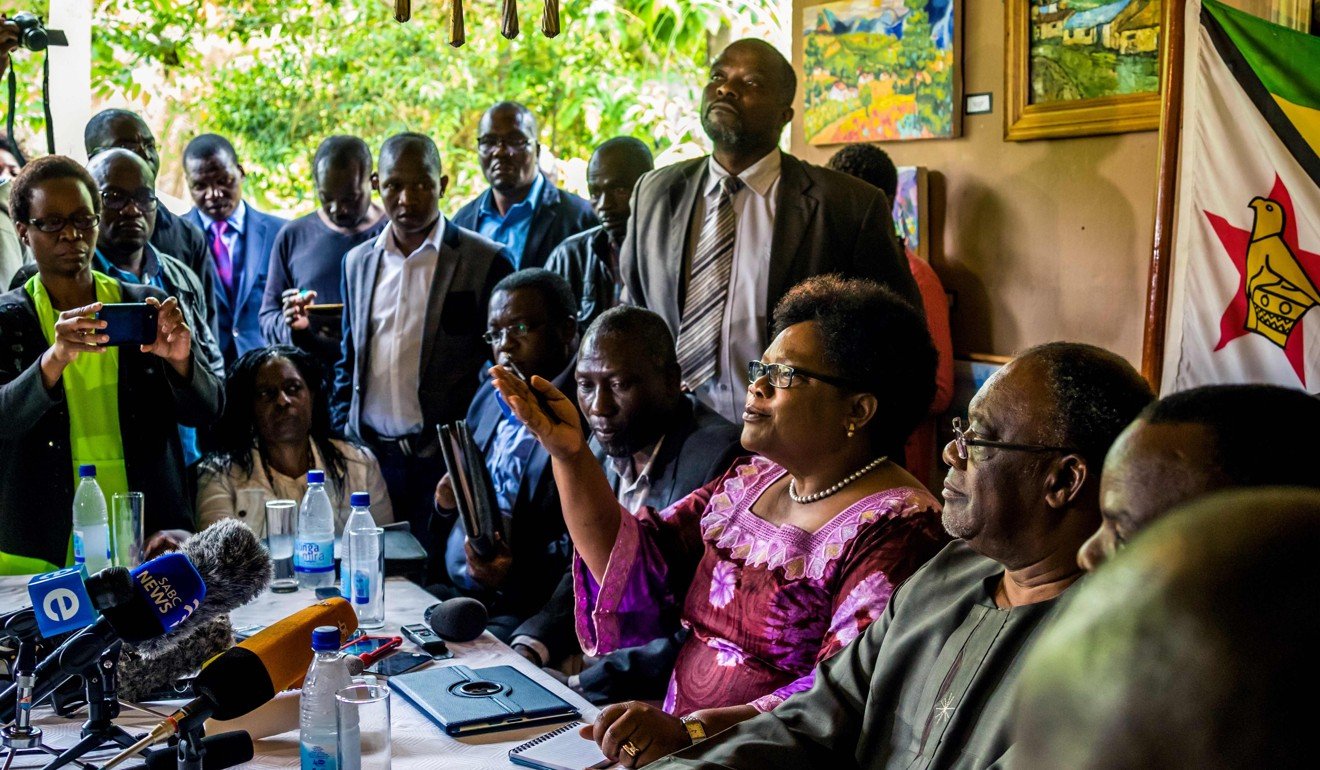
Zimbabwe’s Robert Mugabe refuses to resign as president in talks with army
Zimbabwean President Robert Mugabe, the world’s oldest head of state, refused to resign during a crunch meeting on Thursday with military generals who pushed him from power and seized control of the country.
The talks in Harare came after soldiers blockaded key roads, took over state television and detained the veteran leader.
“They met today. He is refusing to step down. I think he is trying to buy time,” said a source who declined to be named.
Mugabe’s motorcade reportedly took him from his private residence to State House for talks which were held alongside meetings with envoys from the Southern African Development Community (SADC) regional bloc.
Images of the meeting showed Mugabe dressed in a navy blue blazer and grey trousers standing alongside army chief General Constantino Chiwenga who smiled and was dressed in camouflage military fatigues.
Zimbabwe was left stunned at the military intervention against Mugabe, 93, who has ruled the country since independence from British rule in 1980.
Despite Mugabe’s refusal to resign, attention has shifted to the prominent figures who could play a role in any transitional government.
Morgan Tsvangirai, a former prime minister and long-time opponent of Mugabe, told journalists in Harare that Mugabe must resign “in the interest of the people”.
He added that “a transitional mechanism” would be needed to ensure stability.
Tendai Biti, an internationally-respected figure who served as finance minister during the coalition government after the 2008 elections, called it “a very delicate time for Zimbabwe”.
“A way has to be worked out to maintain stability. That restoration requires a road map and to address the grievances that have led to this situation,” he said.
Mugabe’s advanced age, poor health and listless public performances fuelled the bitter succession battle between his wife Grace and vice-president Emmerson Mnangagwa, who Mugabe sacked last week.
Mnangagwa, 75, was previously one of Mugabe’s most loyal lieutenants, having worked alongside him for decades.
But he fled to South Africa following his dismissal and published a scathing five-page rebuke of Mugabe’s leadership and Grace’s presidential ambitions.

The military generals were strongly opposed to Grace’s rise, while Mnangagwa has maintained close ties to the army and could emerge as the next president.
“People want the constitution to be upheld. The talks should look at how to deal with the Mugabe issue in a progressive manner,” political analyst Earnest Mudzengi said.
Eldred Masunungure, a lecturer at the University of Zimbabwe, added that the formation of a “pre-election coalition” could be a viable response to the crisis.
Many Zimbabweans hoped the situation would lead to a more prosperous future.
“We needed change. Our situation has been pathetic,” said Keresenzia Moyo, 65. “The economy has been in the doldrums for a very long time. We are happy with what has been done.”
However a spokesman for the ruling ZANU-PF party, Simon Khaya Moyo, insisted it was business as usual. “It’s normal, everything is normal with the party,” he said.
Harare’s residents largely ignored the few soldiers still on the streets on Thursday and continued commuting, socialising and working. The international community watched the crisis closely.

.png?itok=arIb17P0)